Skincare & Beauty Products to Avoid During Pregnancy
Skincare during pregnancy can feel like a bit of a minefield, but there are only a few big no-nos to avoid the next time you find yourself in the beauty aisle:
1. Formaldehyde
This chemical is most commonly found in hair-straightening treatments, nail polish, and eyelash glue. The CDC warns that formaldehyde is a carcinogen and could increase chances of miscarriage. Though the cause is unknown, the agency recommends avoiding products that contain formaldehyde during pregnancy.
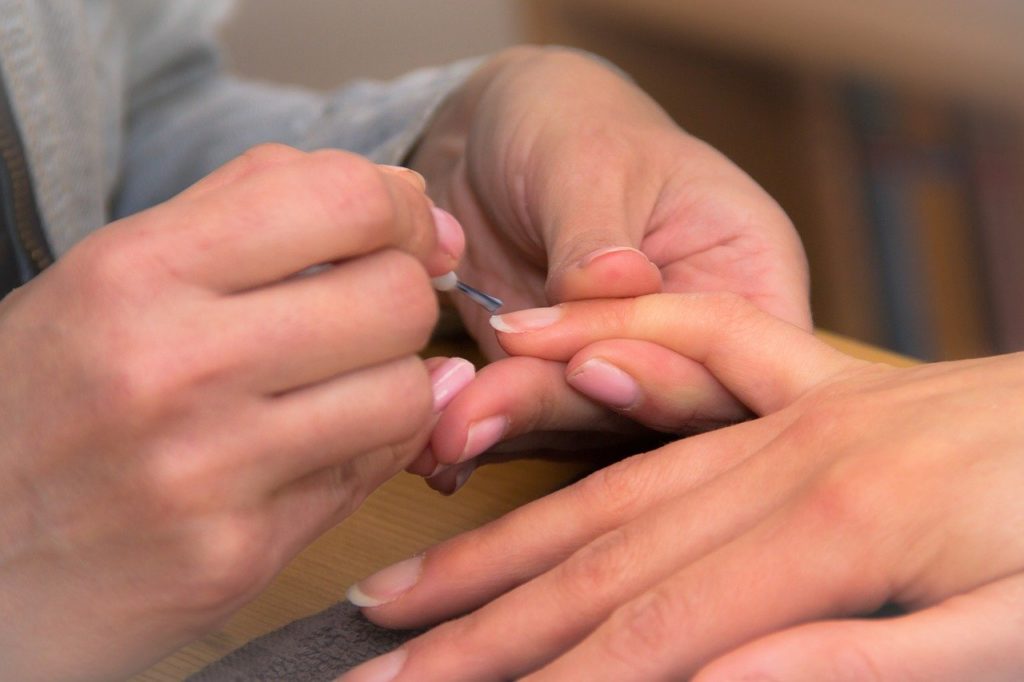
Of course, you can still get your nails done, but choose your nail polish wisely. That is, look for brands that are nontoxic or specifically labeled as five-, seven-, eight-, or nine-free (meaning their formulas don’t contain 5 to 9 of the most toxic ingredients that are notoriously found in nail polishes). Some of our favorite brands are: Tenoverten, Zoya, and Smith & Cult.
2. Parabens
Commonly used in cosmetics, these preservatives help prevent mold and bacteria growth in moisturizers, deodorants, and makeup products. Though there isn’t any evidence that parabens are harmful to your baby’s health, parabens are known endocrinological disruptors and have been linked to breast cancer. We also know that they can penetrate the skin very easily — entering your bloodstream and, eventually, your baby’s.
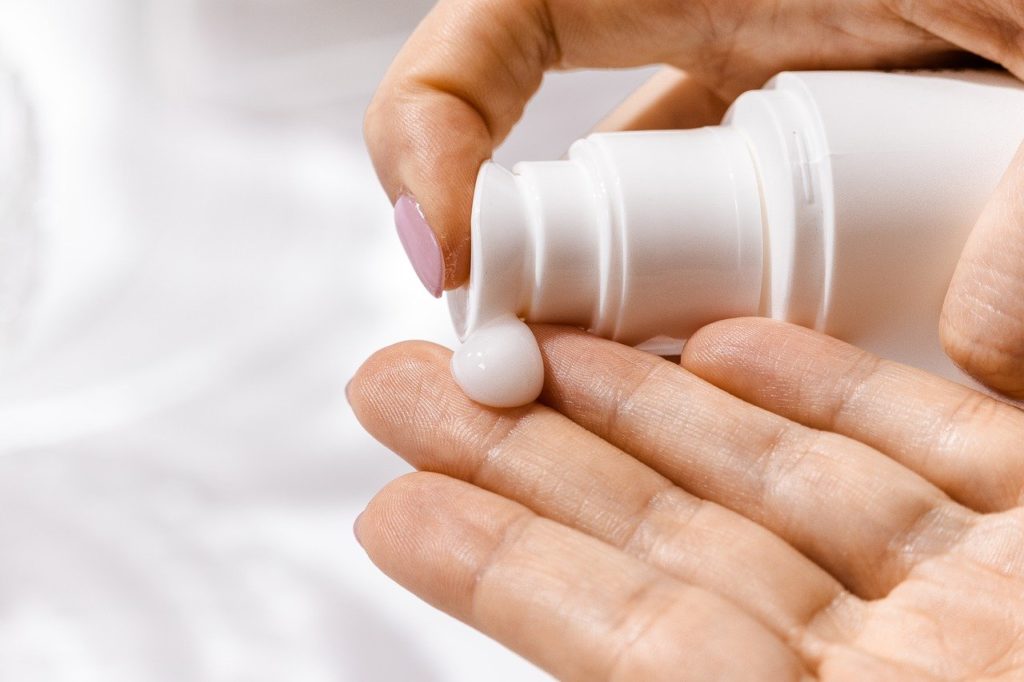
What’s more, just like for cosmetics generally, the FDA doesn’t regulate the use of preservatives in cosmetics. This means you’re basically on your own to ensure the products you’re using are safe. Fun stuff.
Try to find moisturizers free of parabens. We love:
- Tatcha’s The Water Cream
- Biossance’s Squalane + Probiotics Gel Moisturizer, and
- Umbra Sheer Physical Daily Defense Sunscreen Lotion with SPF 30 by Drunk Elephant.
Shampoos also often contain parabens. Some of our favorite brands without these potentially harmful preservatives are R+Co, Acure, and Rahua. They’re also free of sulfate, which can irritate the skin and scalp.
3. Salicylic acid
This common skincare ingredient is an anti-inflammatory agent and exfoliator; it’s commonly used to treat breakouts. The FDA rates salicylic acid as a Pregnancy Category C, which means that its risk cannot be ruled out.
They added, “while small amounts (no more than 2%) have not been proven to be harmful, it is not recommended to use high concentrations of salicylic acid (like a chemical peel) or to use on large areas of the body.” They recommend erring on the safe side and avoiding salicylic acid altogether.
If you’re dealing with pregnancy acne and are desperate to zap your zits, opt for glycolic acid, lactic acid, or witch hazel.
4. Hydroquinone
This is a skin-lightening agent found in both over-the-counter and prescription products; it’s typically used to treat pigment issues like melasma. Since melasma often appears for the first time during pregnancy, it’s especially unfortunate that hydroquinone isn’t advised for pregnant women. According to the Skin Sisters, the only thing we know about hydroquinone is that it has a high rate of systemic absorption, meaning it can be absorbed through the skin and enter the bloodstream (and your milk, if you’re nursing).
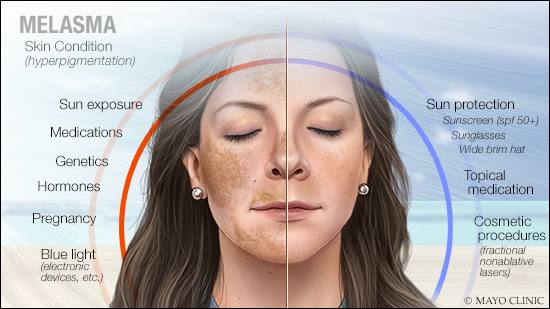
Human studies haven’t shown any problems, but some animal trials have linked hydroquinone to birth defects and stillbirths. Thus, as with salicylic acid, the Skin Sisters recommend minimizing exposure during pregnancy and breastfeeding.
*According to the reference text Drugs in Lactation and Pregnancy, we don’t know whether or not hydroquinone crosses the placenta because it hasn’t been studied in humans. But scientists agree that given its molecular consistency, it easily could pass through.
What can you use to brighten your skin instead? Vitamin C, mulberry extract, and lactic acid are all safe to apply on your skin during pregnancy.
5. Retinol/Retinoid
You’ve probably heard of this one — the hero ingredient in many women’s skincare routines. Retinol, which comes from animal-derived vitamin A, is added to skincare products to boost collagen production and stimulate epidermal turnover, which in turn slows down the aging process. It can help plump the skin, reduce fine lines and wrinkles, and even fight acne and other pigment issues, according to the Skin Sisters. Yes, many dermatologists agree Retinol is a skincare superstar.
Note that retinoid and retinol aren’t quite the same thing — think of them as cousins; both are vitamin A derivatives, but “retinoid” is an umbrella term encompassing both over-the-counter retinols and prescription retinoids. Simply put, retinol, which is readily available over the counter, has a lower concentration of the retinoic acid ingredient and thus works more gradually than retinoids. Prescription retinoids have a much higher concentration of the active agent and need to be prescribed by a doctor.
When you’re expecting or nursing, however, this buzzy topical is off limits. Like, for real off limits. Oral retinoids (otherwise known as tretinoin, isotretinoin, or Accutane) have consistently and repeatedly been linked to numerous kinds of serious birth defects and even fetal death. The connection surfaced shortly after Accutane was introduced in the 1980s, and it was so strong and reliable that doctors debated whether to even continue offering the prescription at all (they decided yes, btw – obviously). But it’s now standard practice for derms to mandate that anyone woman with an Accutane prescription prove she’s using contraception (some docs even won’t write the scrip unless it’s hand in hand with one for “the pill”).
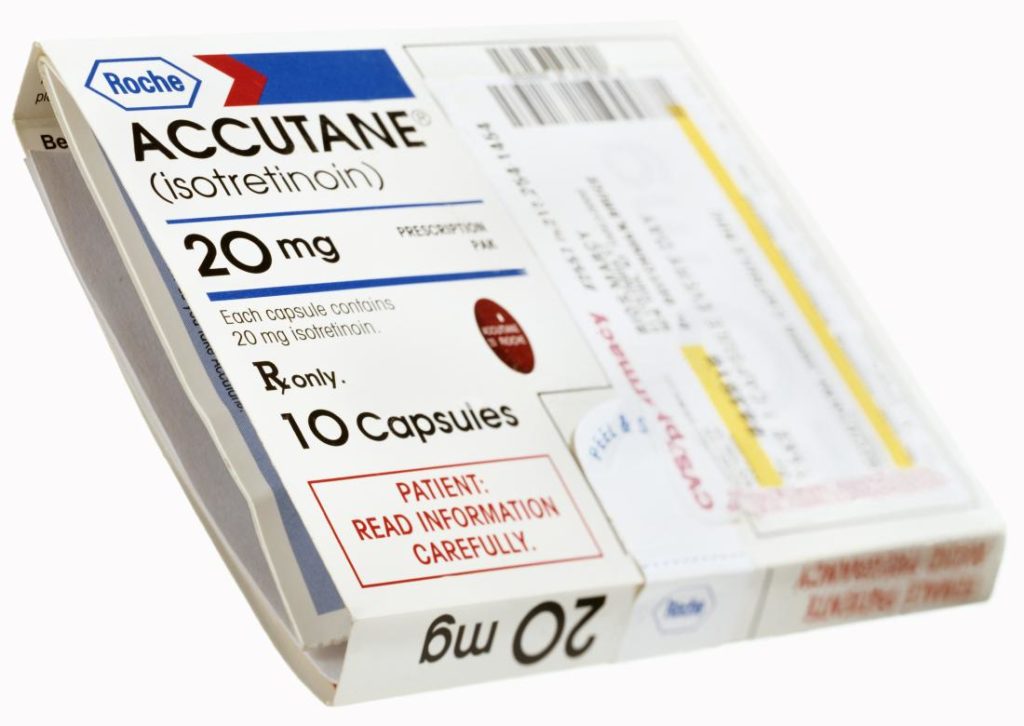
The point is: oral retinoids are well-known teratogens.
There’s very limited evidence on topical retinoids, but there are a few published case studies that indicate harmful effects, and given what we know about the risks that accompany the oral form, medical professionals around the world unanimously recommend forgoing the ingredient altogether.
Plant-based vitamin A v. animal-based vitamin A
I know what you’re wondering: if vitamin A can be so detrimental to my little one’s health, why don’t I need to also drop the carrot? Well, that’s because contrary to popular wisdom, vegetables like carrots and peppers aren’t even reliable sources of vitamin A. Rather, they are sources of beta-carotene (an inactive form of vitamin A), which the body then converts into retinol (the active form of vitamin A).
Broadly speaking, vitamin A derived from animal products (like meat, fish and dairy) is already in its active form (retinol, retinal and retinoic acid), and your body doesn’t need to convert it to absorb it. The extra step of having to convert beta-carotene into vitamin A allows the body to self-regulate and to stop converting before reaching unsafe levels. Pretty cool, right?
So keep eating all the veggies, mama! Beta-carotene is actually fair game. Pâté, on the other hand…
But that aging process is not going to stop itself… So what can you use in place of retinoids? Here’s a new buzz word for you: bakuchiol! In recent years, bakuchiol has become a go-to alternative to retinol. It’s gentler, yet just as efficient in treating aging concerns. But more on that later.
6. Antibiotics and other oral medications to treat skin conditions
While many antibiotics are safe during pregnancy, several are contraindicated because of risks they pose for the developing baby. Spironolactone, for example, is commonly used to treat acne; however, it’s not safe during pregnancy due to the risk for birth defects. If you’re currently taking any prescribed medications or antibiotics to treat a skin condition, make sure to talk to your doctor about it. (Like Accutane!)
Skincare Ingredients to Avoid During Pregnancy: Essential Oils
Many expecting women turn to essential oils to build their own skincare products, and even though they’re “natural,” they’re actually not necessarily safe during pregnancy.
Some essential oils could increase your risk of uterine contractions, for instance; a few of these are cinnamon, clove, wormwood, rue, oak moss, rosemary, and clary sage. And yes, these are associated with an increased risk of contractions even if you just use them topically. According to the Skin Sisters, that’s because essential oils can penetrate the skin, get absorbed, and some may even cross the placenta.
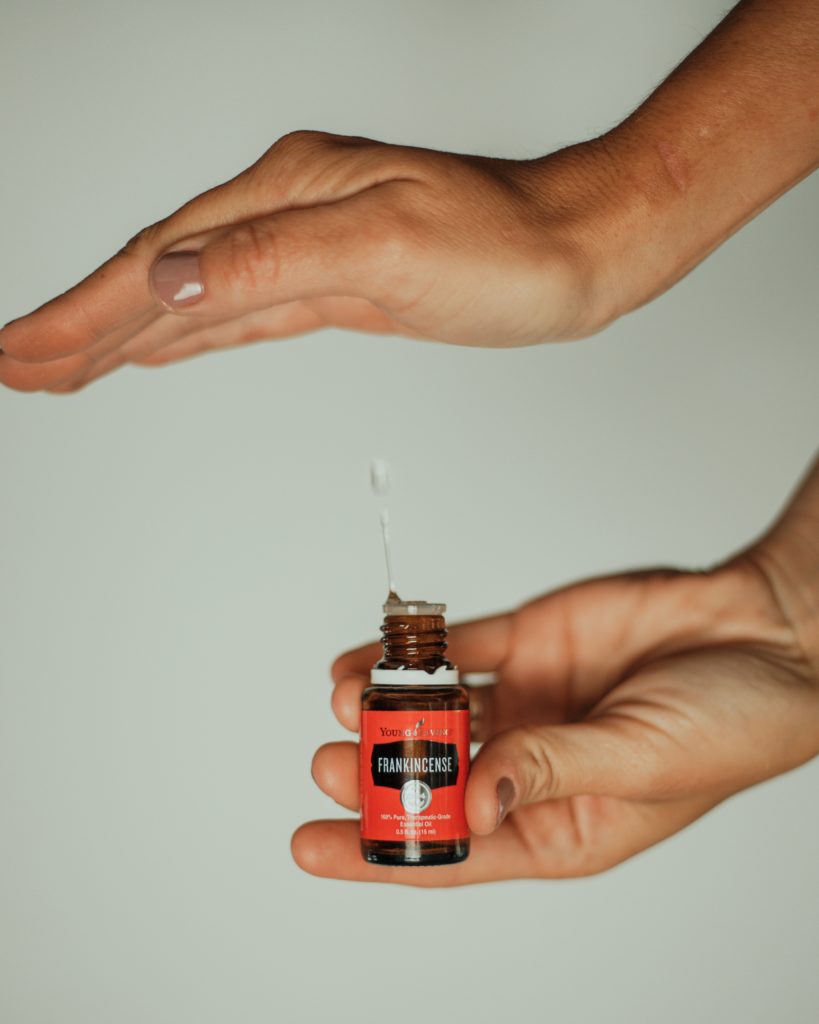
Here are some safe oils that are tried and true (as well as being our personal favorites) for topical use during pregnancy:
- Frankincense: this oil is a miracle worker for your skin. It can help balance and prevent breakouts, and it’s even known to help with signs of aging.
- Lavender: if you’re looking for something to hydrate and calm dry, irritated skin, this is for you. Lavender is known for its calming and anti-inflammatory properties.
- Chamomile: this oil is also known for its anti-inflammatory properties and is a great option to help soothe complexion and rosacea flare-ups (or any skin concerns, really).
- Ylang Ylang: with its antiseptic, antibacterial, and antiseborrheic properties, ylang ylang can help clear pimples in a jiffy.
A couple of notes — first, make sure to never ingest essential oils during pregnancy. Second, when using topically, use a carrier oil like jojoba or coconut oil to mix the essential oils in. Lastly, check with your OB before using any essential oils during pregnancy. In the meantime, here are some guidelines you can refer to.
Now that you know what not to use, keep reading for all the skincare ingredients that are safe to use during pregnancy (and breastfeeding) to treat your everyday skin concerns. Spoiler alert: they actually work! 👉
** Note: the preceding list of skincare ingredients to avoid during pregnancy is by no means comprehensive. So as you’re learning the ropes of pregnancy skincare, run your beauty products by your OB/GYN or dermatologist. They can guide you through the process and help you find gentler, efficient alternatives.
Hello Charlene,
I was wondering if Medicago Sativa (Alfalfa) extract and Methylsulfonylmethane (MSM) are safe to use on skin during pregnancy?
Thank you,
Joseline
Hello! I’ve heard mixed things about hyaluronic acid during pregnancy, is it safe or no? thanks! recent follower and loving the page! -Lauren
Hyaluronic acid is safe to use during pregnancy, and is particularly good for sensitive and acne-prone skin. It’s great for hydration.